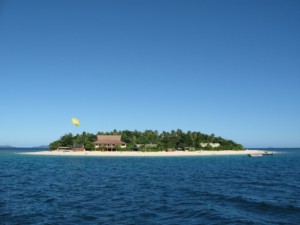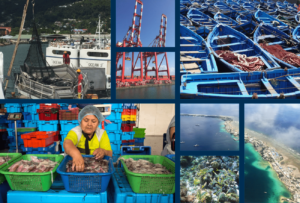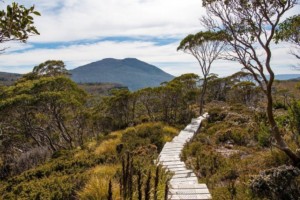Is tourism a way to lift the Pacific out of poverty?
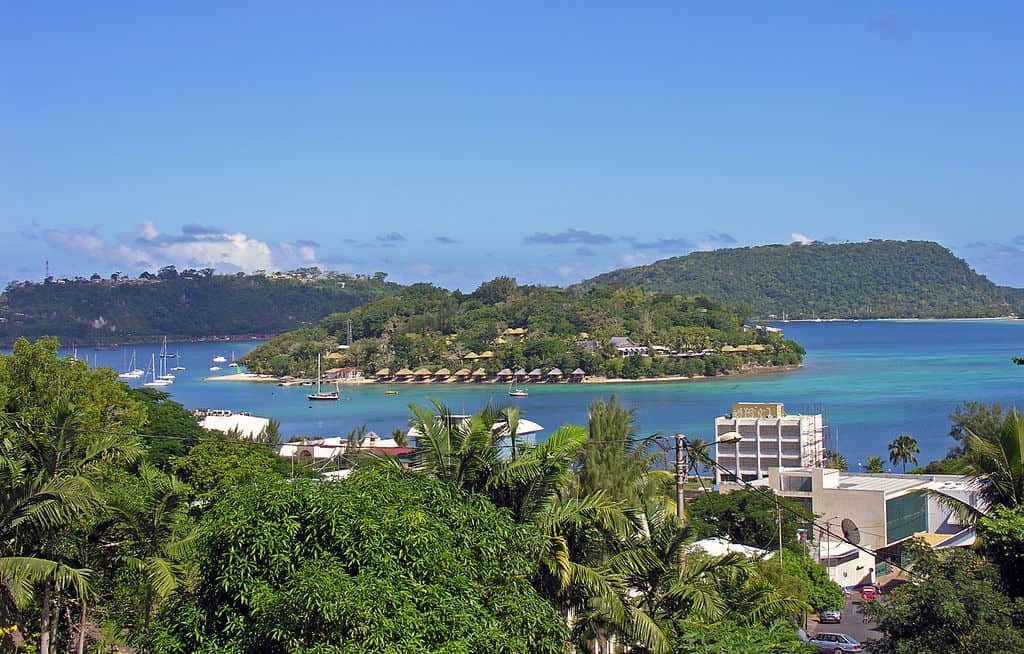
The seafront of Port Vila, Vanuatu, bustles with activity. Traders – most of them women – call out to tourists wandering past, imploring them to take a look at a kaleidoscopic island dress or intricately woven basket.
These ‘market mamas,’ as they are colloquially referred to, are the backbone of a vital part of Vanuatu’s economy – its tourism industry. Tourism employs 55 percent of Vanuatu’s total labour force, represents 65 percent of Vanuatu’s GDP and is also helping communities build resilience to climate change.
Take Port Vila’s seafront, for example, which was destroyed by Tropical Cyclone Pam in March 2015. With the help of the New Zealand government and the Enhanced Integrated Framework, Vanuatu redeveloped the seafront into an attractive area for locals and visitors alike – building a stage for cultural performances, equipping the market mamas with power and internet, and reinforcing the seafront wall to enhance protection against erosion.
It is expected that the seafront redevelopment will contribute to a 36 percent increase in tourism arrivals this year, which means more local jobs not just for tourism operators but also for farmers, furniture makers, beauticians, artists and other professions directly or indirectly impacted by the tourism industry.
Vanuatu is not the only Pacific Island state for which tourism is vital for economic and social development. The World Travel & Tourism Council rates Oceania second to only the Caribbean in terms of tourism’s contribution to employment, GDP, domestic spending and visitor exports.
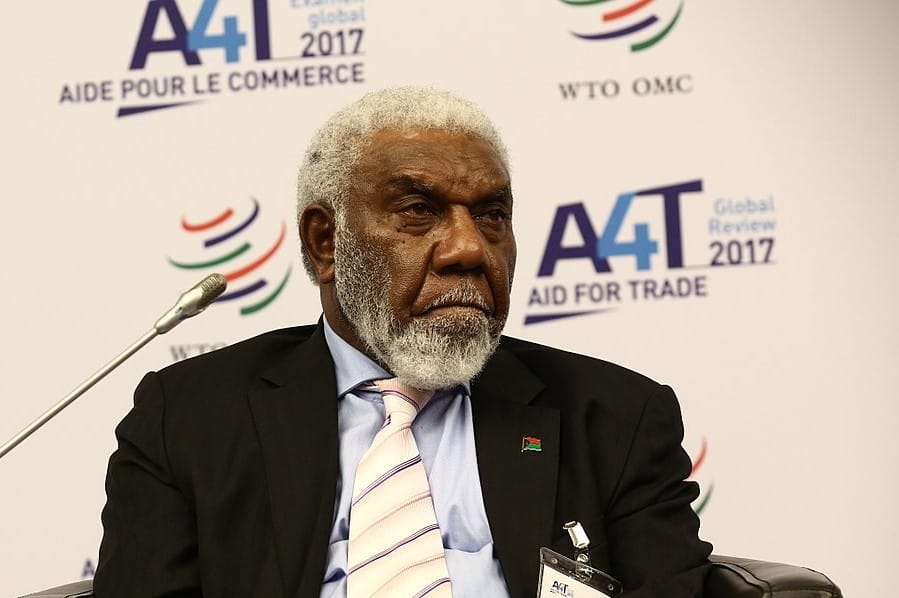
Joe Natuman of Vanuatu at the World Trade Organization (WTO) Aid for Trade Global Review 2017. By WTO/Jay Louvion via Wikimedia.
The Solomon Islands is another country that sees tourism as a powerful tool to decrease poverty in rural communities, and has introduced a number of successful measures in the past few years to enable an increase in participation, particularly of women and youth, in the sector.
Policy initiatives such as the National Tourism Development Strategy 2015 – 2019 (PDF; hosted offsite) have created a favourable environment for tourism to flourish, laying out a roadmap for a prosperous tourism industry in the medium- to long-term.
This has led to accessible educational opportunities in hospitality, travel and tourism which women have particularly have taken advantage of, making up over 70 percent of the 2016 enrolments at the Solomon Islands National University’s School of Tourism and Hospitality.
However, there are still many opportunities for the Pacific Islands states to take advantage of tourism for development, for which urgent priority actions are needed.
First, countries need sufficient transport capacities, including improving air and seaport services with increased frequency and reduced costs of travel from key tourist destinations.
Second, the region needs to develop and strengthen educational institutions to improve tourism-related skills in the workforce. This will allow more local jobseekers to benefit from the sector.
Third, for some countries high fees for tourist visa and other services, as well as rigid procedures on arrival may deter regular tourists. Easing visa requirements and simplifying customs and immigration procedures is crucial.
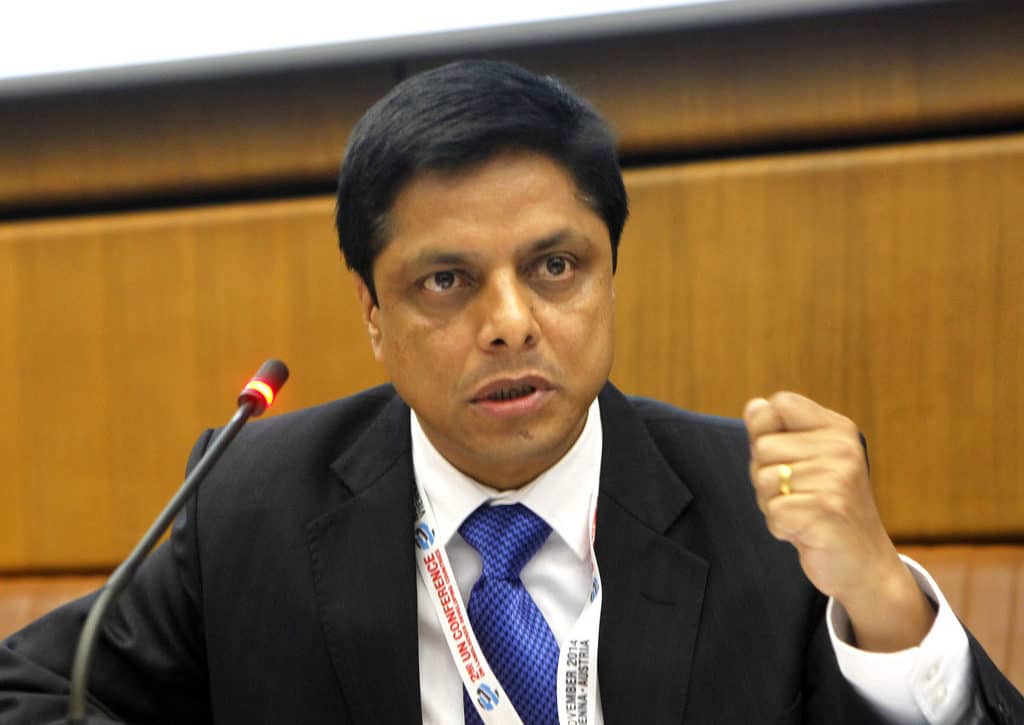
Ratnakar Adhikari, Executive Director of the Enhanced Integrated Framework (EIF). By the United Nations Industrial Development Organization (UNIDO) (CC BY 2.0) via Flickr.
Finally, increased linkages between arriving tourists and local businesses need to be made to ensure inclusive growth from tourism. This could be through linking local farmers to hotels and restaurants through to government-to-government partnerships, as exemplified by the Vanuatu seafront development.
This conversation is coming at an important time. The United Nations has designated 2017 is the International Year of Sustainable Tourism for Development, which aims to support a change in policies, business practices and consumer behaviour towards a more sustainable tourism sector that can contribute to all of the 17 UN Sustainable Development Goals. Leaders across the Pacific have committed to the SDGs, with the Prime Minister of the Solomon Islands declaring the Goals as their “ultimate commitment.”
Ratnakar Adhikari is Executive Director for the Enhanced Integrated Framework and Hon. Joe Natuman is Deputy Prime Minister of Ni-Vanuatu and Minister for Tourism, Trade, Commerce and Business.
Source: The Thomson Reuters Foundation, the charitable arm of Thomson Reuters.
Featured image: Port Vila, Vanuatu, from the War Memorial, 2006. By Phillip Capper (CC BY 2.0) via Wikimedia.
Downloads
- Solomon Islands National Tourism Development Strategy 2015 – 2019 (PDF; hosted offsite)
- Tourism and the UN Sustainable Development Goals (PDF < 1MB)
Related posts



